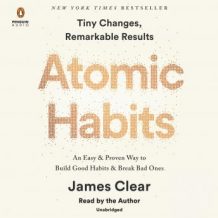Houston, We Have a Narrative: Why Science Needs Story Audiobook
Houston, We Have a Narrative: Why Science Needs Story Audiobook
- David Stifel
- Tantor Media
- 2018-12-04
- 8 h 2 min
Summary:
Consult a scientist on the subject of Hollywood, and you’ll probably get eyes rolls. But inquire someone in Hollywood about technology, and they’ll see dollar symptoms: moviemakers know that science can be the source of great stories, with all the drama and actions that blockbusters require.
That is clearly a huge mistake, says Randy Olson: Hollywood includes a lot to instruct scientists about how to tell a story-and, eventually, how to do technology better. With Houston, WE’VE a Narrative, he lays out a stunningly simple way for about Houston, We Have a Narrative: Why Research Needs Story turning the boring in to the dramatic. Sketching on his exclusive background, which saw him leave his work as an operating scientist to launch a profession as a filmmaker, Olson initial diagnoses the issue: When scientists tell us about their work, they pile one minute and one fine detail atop another second and another detail-a stultifying procession of ‘and, and, and.’ What we are in need of instead is an understanding of the basic components of tale, the narrative structures that our brains are but hardwired to look for-which Olson boils down, brilliantly, to ‘And, But, Therefore,’ or ABT. At a heart stroke, the ABT approach introduces momentum (‘And’), issue (‘But’), and resolution (‘Consequently’)-the fundamental blocks of story. As Olson has shown by leading countless workshops world-wide, when researchers’ eye are opened up to ABT, the result is staggering: all of a sudden, they’re not only discussing their work-they’re telling stories about it. And viewers are captivated.
Created with an uncommon verve and enthusiasm, and built on principles that are applicable to fields significantly beyond science, Houston, WE’VE a Narrative has the power to transform the way science is grasped and appreciated, and eventually how it’s completed.






